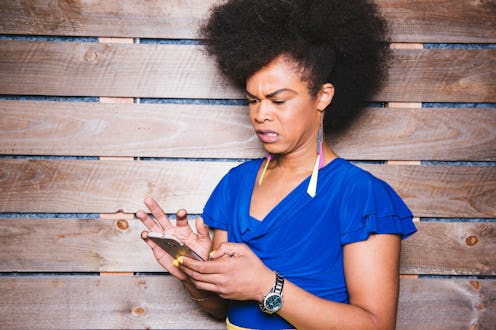Life
5 Totally Pointless Stereotypes About Millennials

Each new generation is painted in an unflattering light by their elders, and currently, there exist some stereotypes about Millennial women that are more than a little ridiculous. Of course, complaining about the next generation isn't a new activity — with all the declarations that young people are ruining everything, you'd think that the world would have ended twice over by now. Even ancient cultures got in on the action; in 23 BC, the Roman poet Horace wrote that "our sires’ age was worse than our grandsires'," followed by a prediction that each subsequent generation would become "more corrupt." And hilariously, Scientific American ran an article in 1859 listing all the ways a newfangled game called chess was making young people unhealthy and unintelligent. I could keep going, but you get the idea.
So it's not exactly a surprise that Millennials — the generation that came of age in the 2000's — have a less-than-stellar reputation among older generations. (In all likelihood, some Millennials will turn around and do the same thing to future generations as they age.) On the other hand, that doesn't make the stereotypes any less harmful, and by virtue of all the societal pressures they face, women are subject to particular scrutiny.
And so, without further ado, here are five assumptions about Millennial women that are far past their expiration date.
They're Vain
Every few months, the subject of selfies pops up again in the news, and they're usually synonymous with vanity. Although selfies certainly aren't exclusive to young people, they're the ones who take the heat for it; in 2014, the New York Times called Millennials the "self(ie) generation." To be fair, a 2014 study showed that women are more likely to take selfies than men, but that doesn't mean they're vain (at least, no more so than any other demographic). In fact, research has shown that the vast majority of Millenials volunteer or donate to charity, most of whom do so without prompting. If Millennials were as vain as their reputation suggests, it's safe to say they'd be too busy Instagramming for civic engagement.
They're Self-Centered
Similarly, the generation is often characterized as utterly self-absorbed. In 2014, Time ran a headline blaring that "Millennials Are Selfish and Entitled, and Helicopter Parents Are to Blame." But as discussed above, Millennials actually show some of the most civic engagement in recent history; they're just redefining what it means.
They Only Care About Careers...
Decades after women began making strides in the workplace in the '80s, everyone is still wondering how women can "have it all" — "it" being a career and a family, as if men haven't been juggling work-life balance for decades. The assumption is that women are forced to choose between the two, and with more of them graduating from college, young women are seen as ruthlessly ambitious, across the board. (At the same time, Millennials in general are called lazy, because stereotypes don't have to make sense.)
However, Millennial women aren't inherently more ambitious; the difference is that the ambitious ones have the opportunity to succeed, thanks to generations of feminists paving the way. Some Millennials are obsessed with making it to the White House, others have different priorities, and many fall somewhere in between. Painting everyone with a broad brush accomplishes nothing.
...And Instagram Likes
When journalists and researchers characterize Millennials as narcissistic, social media is usually the first topic they bring up. However, research on the subject is conflicting; some studies say social media is associated with narcissism, while others claim that it largely depends on how and why you use it. Either way, though, Millennials are far from the only people to use social media. According to the Pew Research Center, social media use among those over 65 has tripled since 2010, so if social media use is a sign of narcissism, everyone is on the hook.
They're Exclusively Into Hook-Up Culture
Millennials have a reputation for being into "hookup culture," or a culture of casual sex rather than monogamous romantic relationships. Generally, the articles and thinkpieces on the subject focus on its effect on women -- the assumption is that they all participate, although whether women are into it or not depends on the author's point of view. In the end, though, it's not as widespread as many think. According to a study of more than 14,000 college students, about a quarter of young people haven't hooked up with anyone, while roughly the same amount have done so more than 10 times. That leaves 48 percent somewhere in the middle.
The takeaway? Some women are into casual sex, while others aren't, and neither perspective is "wrong." It's almost like sweeping generalizations about an entire generation usually turn out to be wrong!
Images: Andrew Zaeh for Bustle; Giphy (5)